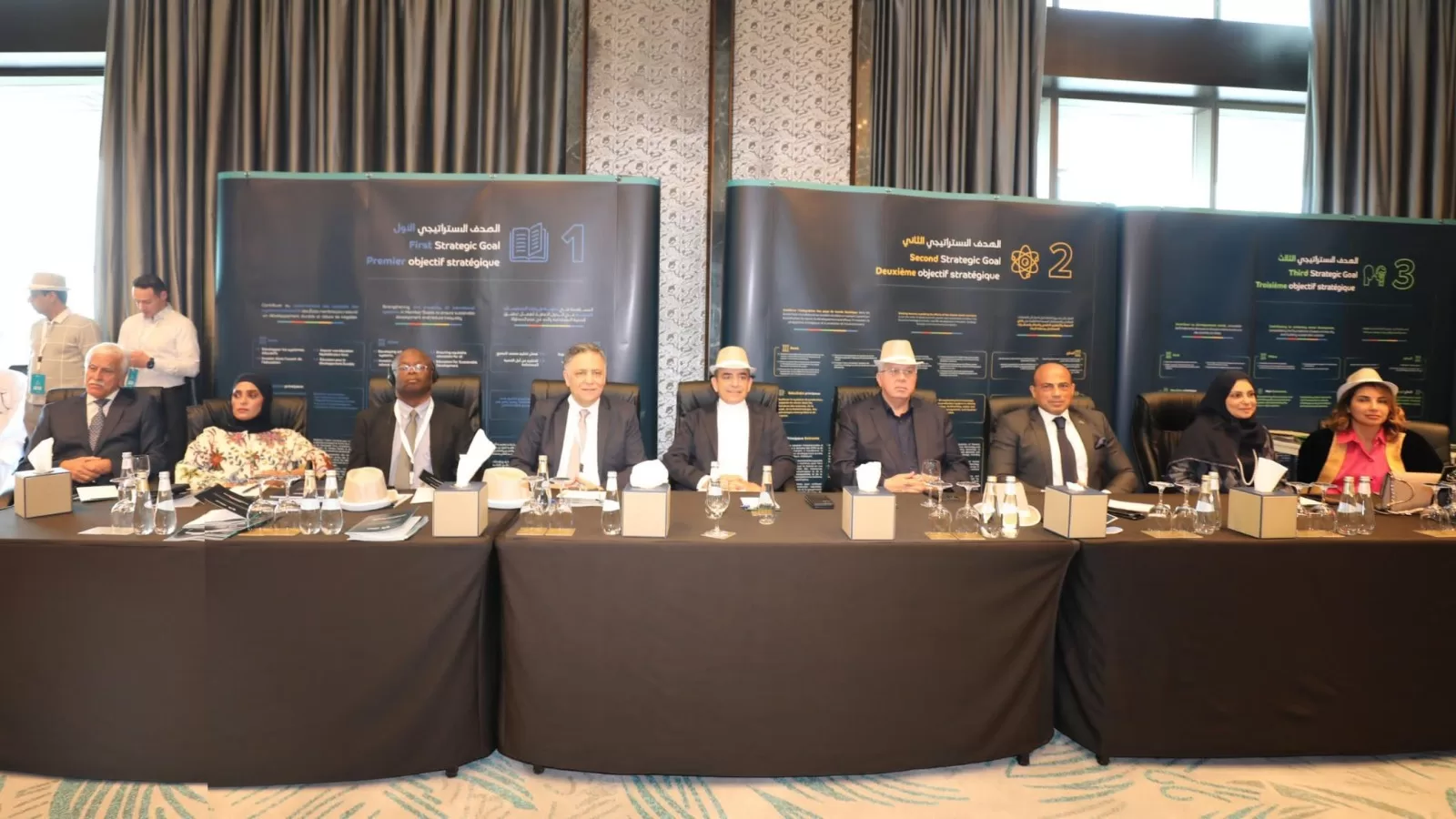

High-Level Participation in ICESCO Second Consultative Meeting in Jeddah
The Islamic World Educational, Scientific and Cultural Organization (ICESCO) convened its second Consultative Meeting under the theme, “Innovation in ICESCO.” The Meeting is organized in Jeddah, as part of the 44th Session of the Organization’s Executive Council, being held on 16-18 January, and hosted by the Kingdom of Saudi Arabia, represented in its National Commission for Education, Culture, and Science, with the participation of high-level officials, including ministers, ambassadors, and representatives from the Member States, alongside delegations of regional and international organizations.
The Meeting focused on the opportunities and challenges facing the Islamic world and provided an outlook on the future of ICESCO and the pivotal role of innovation in its new strategy to become “The ICESCO We Want.” The agenda also tackled cooperation projects between the Organization and its Member States, in coordination with their respective National Commissions, in addition to the major global events to be hosted by the Member States.
In his opening remarks, Dr. Salim M. AlMalik, ICESCO Director-General, stated that the Organization upholds the principle of consultation in all its endeavors, as it marches ahead, ready to open up to new prospects and address challenges that may arise. Dr. AlMalik urged the Member States’ ministers, ambassadors, and secretaries-general of the National Commissions to put forth their proposals, ideas, and practical initiatives, as they are an integral part of ICESCO’s vision and action strategies.
Moreover, Dr. AlMalik stated that the Meeting’s activities provide an opportunity for brainstorming and creative idea among the representatives of the Member States and ICESCO’s team. He added that the outcomes of the Meeting would serve as basis for devising the Organization’s action plans for the upcoming years, particularly with regard to ethical leadership, investment in human resources, governance, and innovation culture, stressing the need to promote cooperation among the Member States to launch and organize international initiatives and conferences.
For his part, Dr. Mohamed Ayman Ashour, Minister of Higher Education and Scientific Research, President of the Egyptian National Commission, and President of ICESCO General Conference, highlighted the main challenges and opportunities facing the Islamic world by analyzing the human resources indicators in the Islamic world and its contribution to gross world product, the level of scientific research, innovations and patents and the global ranking of universities in the Islamic world. Furthermore, Dr. Ashour underscored the importance of scientific research in achieving innovation in medicine, engineering, and industrial production, seizing the opportunity to commend ICESCO’s initiatives in these fields.
The first activity themed, “Shape the Future of ICESCO with Us” was an opportunity for participants to present ideas and proposals of innovative initiatives on ethical leadership, investment in human resources, innovation culture and smart services. The second activity, “Innovation in ICESCO Strategy,” was dedicated to generating ideas for initiatives on ideas, information exchange, capacity building, and cooperation enhancement in policymaking.
Afterward, a brainstorming session took place to discuss the major global events to be hosted by the Members States, notably Riyadh Expo 2030, UNESCO General Conference in Uzbekistan, COP 29 in Azerbaijan, and UNCCD COP 16 in Riyadh, The Meeting also featured a presentation on the celebration of the Golden Jubilee of the Omani National Commission for Education, Science and Culture.
The Consultative Meeting concluded its proceedings with a discussion session between ICESCO Director-General and members of National Commissions.
